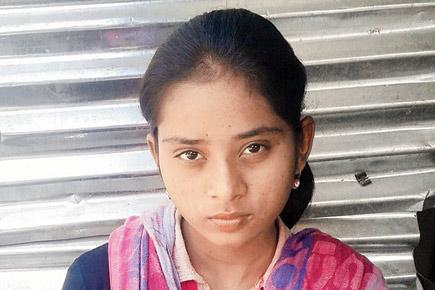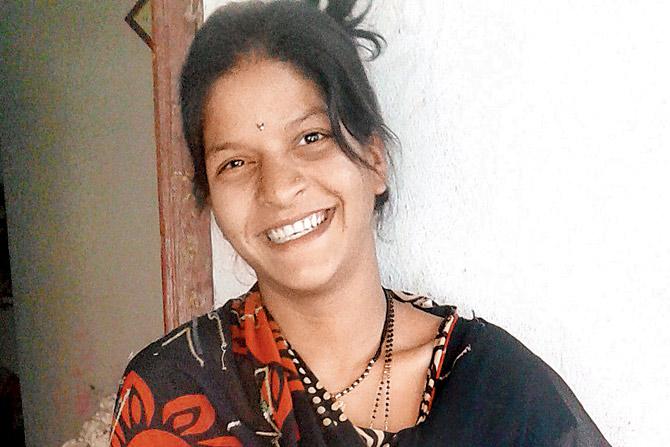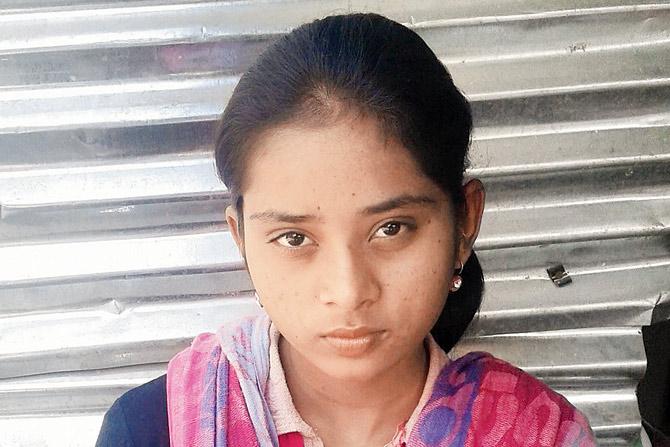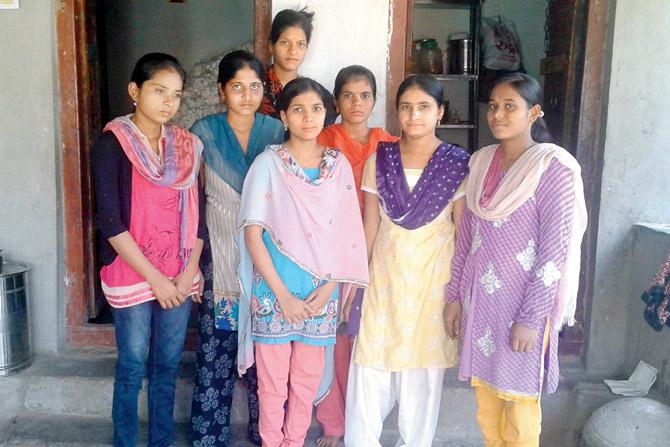They were once victims of child marriage, today a group of girls from the drought-hit region of Parbhani are torchbearers of change

 They were once victims of child marriage, today a group of girls from the drought-hit region of Parbhani are torchbearers of change.
They were once victims of child marriage, today a group of girls from the drought-hit region of Parbhani are torchbearers of change.
Around 500 kilometers from Mumbai, Parbhani district makes headlines for all the wrong reasons, from rampant child marriage to a rising number of farmer suicides.
ADVERTISEMENT
Now, the beleaguered address has something to cheer about. Girls from Savli village, one of the 54 villages in Manvath taluka of Parbhani district are advocating an end to child marriage.

Geeta Kale
Rani Kale (17) recalls how she narrowly escaped being married a week before her sixteenth birthday. Her parents, both farmers, had decided to migrate to a city with the entire family including Rani’s two younger brothers. Thanks to helpful friends from a group named Savitrichya Kanya, her parents were convinced to call off the wedding.

Rani Kale
Rani is now part of Savitrichya Kanya (‘Daughters of Savitribai’), named after social reformer Savitribai Phule. The group was founded after the intervention of Sankalp Manav Vikas Sanstha, a project partner of Child Rights and You (CRY), which works for the education of underprivileged children in various districts of Marathwada. In Savli, 17 girls aged 12 to 18 are part of this adolescent girls’ group.
“I wanted to finish school, not get married. My parents said they would not be able to take care of me when they moved to the city. By getting me married, they felt their obligations would fold up, that I would be protected,” she says over the phone. Rani finally managed to convince her parents to allow her to study further.

Members of Savitrichya Kanya in Salvi
Extreme measures
Social activists working in Marathwada observe that several villages (especially in talukas of Pathari, Selu and Manvath) lie empty, except for the presence of the elderly. Speaking to Sunday midday, Sudhakar Kshirsagar, founder of Sankalp, says, “The severe and ongoing drought has forced families to migrate to cities with their children in search of jobs. A majority of them take their children with them, forcing them to drop out of school. But the larger issue is of young teenage girls. Concerned parents worry that their daughters will fall prey to wily contractors and other labourers. They believe getting them married is the better option.”
Most migrant families look for jobs at construction sites or in sugarcane farms in and around Mumbai, Nasik, Aurangabad, Kolhapur and Solapur. Some go as far as Karnataka. Kshirsagar adds, “Some parents fear that their daughters will elope, while others are superstitious that, if there has been a death in the family, boys and girls should get married within six months. Else they will have to wait for another three years before a wedding date can be set.”
To date, Sankalp has prevented 150 child marriages. Rani adds, “In December 2015, they stopped three child marriages in Savli. The parents of the brides and grooms were counselled. Although there is better awareness now, some parents still indulge in the practice at a temple on the outskirts of the village or in another village where nobody knows them. None of the marriages get registered with a local body or the village panchayat.”
Pathari, Selu and Manvath have around 207 villages in total, and each village has a Savitrichya Kanya group member, whose work focuses on three aspects — child rights (villagers are educated about child marriages and child labour), child health (visiting primary health centers, ensuring the presence of toilets, availability of potable drinking water, etc.), and child education (re-enrolling drop-outs, resolving aanganwadi teachers’ issues, etc.).
Seventeen-year-old Geeta Kale, another member has been working to stop other teenage girls from being coerced into marrying. Unfortunately, she couldn’t escape the fate herself. “I was married at 15 and there was nothing I could do. I learnt of the group after I arrived here. I now work alongside them to spread awareness,” she says. While Geeta had to drop out of school, Rani is keen to become an IAS officer. “My parents have moved from the village but they agreed to let me stay here with my grandmother.” Others dream of becoming teachers and singers, but the decision to stand for child rights persists.
 Subscribe today by clicking the link and stay updated with the latest news!" Click here!
Subscribe today by clicking the link and stay updated with the latest news!" Click here!







